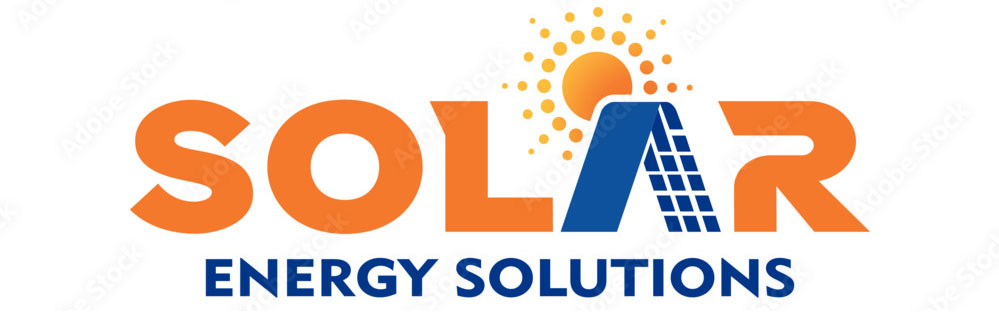Introduction
Understanding Energy Levels
Energy is a fundamental aspect of our daily lives, influencing everything from our physical activities to our mental clarity and emotional well-being. At its core, energy is the capacity to do work, and it manifests in various forms such as kinetic, thermal, and chemical energy. Our bodies generate energy through metabolic processes that convert food into usable energy, primarily in the form of adenosine triphosphate (ATP). However, energy levels can fluctuate due to numerous factors including diet, sleep, stress, and physical activity.
Importance of Sustained Energy
Maintaining sustained energy levels is crucial for overall well-being and productivity. When energy levels are consistently high, individuals are more likely to perform better at work, engage in physical activities, and maintain a positive mood. Conversely, low energy levels can lead to fatigue, decreased productivity, and a negative impact on mental health. Sustained energy is not just about avoiding tiredness; it’s about optimizing your life to achieve your goals and enjoy your activities fully. Research has shown that sustained energy can also enhance creativity, making it a vital component for those in creative professions.
Target Audience Overview
This article is designed for a broad audience, including professionals, students, and anyone looking to improve their energy levels naturally. Whether you are a busy executive, a creative artist, or a stay-at-home parent, the strategies discussed here can help you boost your energy levels. The tips and techniques are backed by scientific research and expert opinions, making them reliable and effective. By implementing these strategies, you can achieve a more balanced, energetic, and fulfilling life.
Natural Ways to Boost Energy
Healthy Diet and Nutrition
One of the most effective ways to boost your energy levels naturally is through a healthy diet. Consuming foods with a low glycemic index, such as whole grains, high-fiber vegetables, nuts, and healthy oils like olive oil, can help maintain steady blood sugar levels, preventing the energy crashes that often follow the consumption of refined sugars and starches. Additionally, incorporating lean proteins such as poultry, fish, beans, and nuts can provide sustained energy throughout the day.
Starting your day with a nutritious breakfast is crucial. High-fiber foods like oatmeal can keep you feeling full longer and prevent mid-morning energy slumps. Avoiding ultra-processed foods and opting for whole foods can also improve your energy levels. For instance, choose baked potatoes with the skin on instead of potato chips, or dark chocolate instead of a candy bar.
Regular Physical Activity
Exercise is a natural energy booster. Engaging in regular physical activity increases the circulation of oxygen-rich blood throughout your body, enhancing your heart, muscles, and brain function. Even short bursts of activity, such as a brisk walk or a few minutes of stretching, can significantly elevate your energy levels and improve your mood.
Incorporating exercise into your daily routine doesn’t have to be daunting. Simple changes like taking the stairs instead of the elevator, walking during lunch breaks, or scheduling active time on your calendar can make a big difference. Regular exercise also promotes better sleep, which in turn boosts your energy levels.
Adequate Sleep and Rest
Getting enough sleep is essential for maintaining high energy levels. Adults typically need at least seven hours of sleep per night to function optimally. Poor sleep can lead to increased cravings for sugary foods, which can cause blood sugar spikes and subsequent energy crashes.
If you struggle with sleep, try going to bed earlier and creating a relaxing bedtime routine. Avoiding caffeine in the afternoon and limiting screen time before bed can also improve sleep quality. Power naps of 15-20 minutes can be refreshing, but longer naps may leave you feeling groggy.
Hydration
Staying hydrated is crucial for maintaining energy levels. Dehydration can cause fatigue and affect your mood and cognitive function. Drinking water throughout the day can help keep your energy levels stable.
To stay hydrated, consider drinking a glass of water before each meal, carrying a refillable water bottle, and adding flavor to your water with lemon, herbs, or fruit. Drinking tea or coffee in moderation can also contribute to your daily fluid intake, but be mindful of caffeine’s potential impact on sleep.
By focusing on a healthy diet, regular physical activity, adequate sleep, and proper hydration, you can naturally boost your energy levels and improve your overall well-being.
Mental and Emotional Well-being
Stress Management Techniques
Stress is a significant factor that can drain both mental and physical energy. Managing stress effectively is crucial for maintaining high energy levels. Here are some techniques to help manage stress:
- Exercise: Regular physical activity can help reduce stress hormones and trigger the release of endorphins, which are natural mood lifters.
- Relaxation Techniques: Practices such as deep breathing, progressive muscle relaxation, and guided imagery can help calm the mind and reduce stress.
- Time Management: Prioritizing tasks and setting realistic goals can help reduce the feeling of being overwhelmed.
- Hobbies: Engaging in activities you enjoy can provide a mental break and reduce stress.
Mindfulness and Meditation
Mindfulness and meditation are powerful tools for enhancing mental and emotional well-being. These practices can help increase awareness, improve focus, and boost overall mood.
- Mindfulness: This involves paying attention to the present moment without judgment. It can be practiced through mindful eating, walking, or simply being aware of your surroundings.
- Meditation: Regular meditation can help create a mentally “quiet” space, allowing your brain to rest and refresh. Benefits include increased attention, improved mood, and heightened awareness.
Incorporating mindfulness and meditation into your daily routine can help recharge your mental batteries and improve your overall energy levels.
Positive Social Interactions
Social connections play a vital role in mental and emotional well-being. Positive interactions with others can provide emotional support, reduce stress, and enhance overall happiness.
- Family and Friends: Spending time with loved ones can provide a sense of belonging and support.
- Community Involvement: Participating in community activities or volunteering can help build new connections and provide a sense of purpose.
- Social Activities: Engaging in social activities, such as group sports or clubs, can help reduce feelings of isolation and improve mood.
Building and maintaining strong social connections can significantly impact your mental and emotional well-being, leading to increased energy and a more positive outlook on life.
Environmental Factors
Creating an Energizing Space
Your immediate environment plays a crucial role in your energy levels. A well-organized, clean, and aesthetically pleasing space can significantly boost your mood and energy. Here are some tips to create an energizing space:
- Declutter: A clutter-free environment reduces stress and increases focus. Regularly clean and organize your space to keep it tidy.
- Natural Light: Maximize natural light in your home or workspace. Sunlight boosts serotonin levels, which can improve mood and energy.
- Plants: Incorporate indoor plants. They not only purify the air but also add a touch of nature, which can be calming and energizing.
- Colors: Use colors that energize you. Bright colors like yellow and orange can be stimulating, while greens and blues can be calming yet refreshing.
- Aromatherapy: Use essential oils like peppermint or citrus to invigorate your senses and boost your energy levels.
Outdoor Activities and Nature
Spending time outdoors and engaging with nature can have a profound impact on your energy levels. Here are some ways to incorporate outdoor activities into your routine:
- Walking or Hiking: Regular walks or hikes in natural settings can reduce stress and increase physical energy. Aim for at least 30 minutes a day.
- Gardening: Gardening is a great way to connect with nature and get some light exercise. It can be both relaxing and invigorating.
- Outdoor Sports: Engage in outdoor sports like cycling, running, or playing a game of soccer. These activities can boost your physical fitness and energy levels.
- Picnics and Relaxation: Simply spending time in a park, having a picnic, or reading a book under a tree can rejuvenate your mind and body.
Reducing Exposure to Toxins
Reducing your exposure to environmental toxins can significantly improve your overall health and energy levels. Here are some strategies to minimize toxin exposure:
- Air Quality: Use air purifiers to reduce indoor air pollutants. Ensure proper ventilation in your home to keep the air fresh.
- Water Quality: Drink filtered water to avoid contaminants. Staying hydrated with clean water is essential for maintaining energy levels.
- Household Products: Choose natural and eco-friendly cleaning products. Many conventional cleaners contain harmful chemicals that can affect your health.
- Personal Care Products: Opt for natural personal care products. Avoid items with synthetic fragrances, parabens, and sulfates.
- Food Choices: Eat organic and locally sourced foods when possible. This reduces your exposure to pesticides and other harmful chemicals.
By creating an energizing space, engaging in outdoor activities, and reducing exposure to toxins, you can significantly boost your energy levels and improve your overall well-being.
Technological Aids
Wearable Technology for Health Monitoring
Wearable technology has revolutionized the way we monitor our health and energy levels. Devices such as smartwatches and fitness trackers can provide real-time data on various health metrics, including heart rate, sleep patterns, and physical activity. By keeping track of these metrics, individuals can gain insights into their daily energy expenditure and identify patterns that may be contributing to fatigue.
For instance, many wearables offer sleep tracking features that analyze the quality and duration of your sleep. Poor sleep is a significant factor in low energy levels, and understanding your sleep patterns can help you make necessary adjustments. Additionally, wearables can remind you to move if you’ve been sedentary for too long, encouraging regular physical activity, which is crucial for maintaining energy levels.
Apps for Energy Management
In the digital age, there are numerous apps designed to help manage and boost your energy levels. These apps can offer a range of functionalities, from tracking your diet and hydration to providing guided meditation sessions and stress management techniques.
For example, apps like MyFitnessPal can help you monitor your nutritional intake, ensuring you consume a balanced diet that supports sustained energy. Hydration apps remind you to drink water throughout the day, which is essential for maintaining energy levels. Meditation apps like Headspace or Calm offer guided sessions that can help reduce stress and improve mental clarity, both of which are vital for maintaining high energy levels.
Moreover, some apps are specifically designed to help you manage your sleep. Apps like Sleep Cycle analyze your sleep patterns and wake you up during the lightest phase of sleep, making you feel more refreshed and energized.
Portable Solar Power Solutions
Portable solar power solutions are an excellent way to ensure you have a reliable energy source, especially if you spend a lot of time outdoors or in remote areas. These devices can charge your gadgets, such as smartphones, tablets, and even laptops, using solar energy, which is both sustainable and convenient.
Portable solar chargers come in various sizes and capacities, making them suitable for different needs. Whether you’re hiking, camping, or simply spending a day at the beach, having a portable solar charger can keep your devices powered, ensuring you stay connected and productive.
Additionally, some advanced portable solar solutions come with built-in batteries that store energy for later use. This feature is particularly useful during cloudy days or at night, providing a continuous power supply when sunlight is not available.
In conclusion, leveraging technology can significantly enhance your ability to manage and boost your energy levels. Wearable technology, energy management apps, and portable solar power solutions offer practical and effective ways to maintain high energy levels throughout the day. By integrating these technological aids into your daily routine, you can achieve a more balanced and energized lifestyle.
Sustainable Living and Energy
Benefits of Renewable Energy
Renewable energy sources, such as solar, wind, and hydroelectric power, offer numerous benefits over traditional fossil fuels. Firstly, they are **environmentally friendly**. Unlike coal or oil, renewable energy sources produce little to no greenhouse gases or pollutants, significantly reducing our carbon footprint and helping combat climate change. Additionally, renewable energy is **sustainable**; it relies on natural processes that are constantly replenished, ensuring a long-term energy supply.
Another key benefit is **energy independence**. By investing in renewable energy, countries can reduce their reliance on imported fuels, enhancing national security and economic stability. Moreover, the renewable energy sector is a significant job creator, offering employment opportunities in manufacturing, installation, and maintenance. This not only boosts the economy but also fosters innovation and technological advancements.
Solar Power for Off-Grid Living
Solar power is a versatile and accessible form of renewable energy, particularly beneficial for off-grid living. By installing solar panels, individuals can generate their own electricity, reducing or even eliminating their dependence on traditional power grids. This is especially advantageous in remote areas where extending the grid is impractical or too costly.
**Off-grid solar systems** typically include solar panels, a battery storage system, and an inverter. The panels capture sunlight and convert it into electricity, which is then stored in batteries for use during cloudy days or nighttime. This setup ensures a reliable and continuous power supply, promoting self-sufficiency and resilience.
Moreover, solar power systems have become more affordable and efficient over the years. Government incentives and rebates further reduce the initial investment costs, making solar power a viable option for many households. By embracing solar energy, individuals not only save on utility bills but also contribute to a cleaner and more sustainable environment.
Eco-Friendly Practices
Adopting eco-friendly practices is essential for sustainable living. Here are some practical steps to reduce your environmental impact:
- Think Twice Before Shopping: Every product we purchase has an environmental footprint. Before buying, ask yourself if you really need it. Opt for secondhand items or products made from sustainable materials with minimal packaging.
- Ditch Plastic: Plastic pollution is a significant environmental issue. Use reusable bags, bottles, and containers. Avoid single-use plastics and choose products with eco-friendly packaging.
- Eat Sustainably: Reduce meat consumption and opt for plant-based foods. Buy local and seasonal produce to minimize transportation emissions. Plan your meals to avoid food waste.
- Conserve Water: Fix leaks, take shorter showers, and use water-efficient appliances. Consider xeriscaping your yard with drought-resistant plants to reduce water usage.
- Reduce Energy Consumption: Use energy-efficient appliances and light bulbs. Insulate your home to maintain temperature and reduce heating and cooling needs. Consider installing solar panels or using green energy providers.
- Support Sustainable Brands: Choose products from companies that prioritize sustainability and ethical practices. Look for certifications like Fair Trade, organic, and cruelty-free.
By integrating these practices into your daily life, you can significantly reduce your environmental footprint and promote a more sustainable future. Remember, every small action counts, and collectively, we can make a substantial impact.
Conclusion
Recap of Key Points
Throughout this article, we have explored various strategies to boost your energy levels naturally and sustainably. We began by understanding the importance of maintaining high energy levels and identified our target audience. We then delved into natural methods such as maintaining a healthy diet, engaging in regular physical activity, ensuring adequate sleep, and staying hydrated. We also discussed the significance of mental and emotional well-being, including stress management, mindfulness, and positive social interactions. Environmental factors like creating an energizing space, spending time outdoors, and reducing exposure to toxins were also highlighted. Additionally, we examined technological aids such as wearable technology, energy management apps, and portable solar power solutions. Finally, we touched upon the benefits of sustainable living and renewable energy sources.
Encouragement to Implement Strategies
Implementing these strategies may seem overwhelming at first, but remember that even small changes can make a significant difference in your energy levels. Start by incorporating one or two new habits into your daily routine and gradually build from there. For instance, you might begin by improving your diet and ensuring you get enough sleep. Once these habits are established, you can add regular physical activity and mindfulness practices. The key is consistency and making these practices a part of your lifestyle. By doing so, you will not only boost your energy but also improve your overall well-being.
Final Thoughts on Sustainable Energy
Sustainable energy is not just about the environment; it’s also about sustaining your personal energy levels. By adopting eco-friendly practices and utilizing renewable energy sources, you contribute to a healthier planet while also enhancing your own vitality. Solar power, for example, can provide a reliable and clean source of energy for your home, reducing your dependence on non-renewable resources. Similarly, eco-friendly practices such as reducing waste and conserving water can create a more balanced and energizing living environment. Embracing sustainable living is a holistic approach that benefits both you and the world around you.
In conclusion, boosting your energy levels involves a multifaceted approach that includes physical health, mental well-being, environmental factors, and sustainable living. By implementing the strategies discussed in this article, you can achieve sustained energy and lead a more productive, fulfilling life. Remember, the journey to higher energy levels is a marathon, not a sprint. Take it one step at a time, and you will see lasting results.






